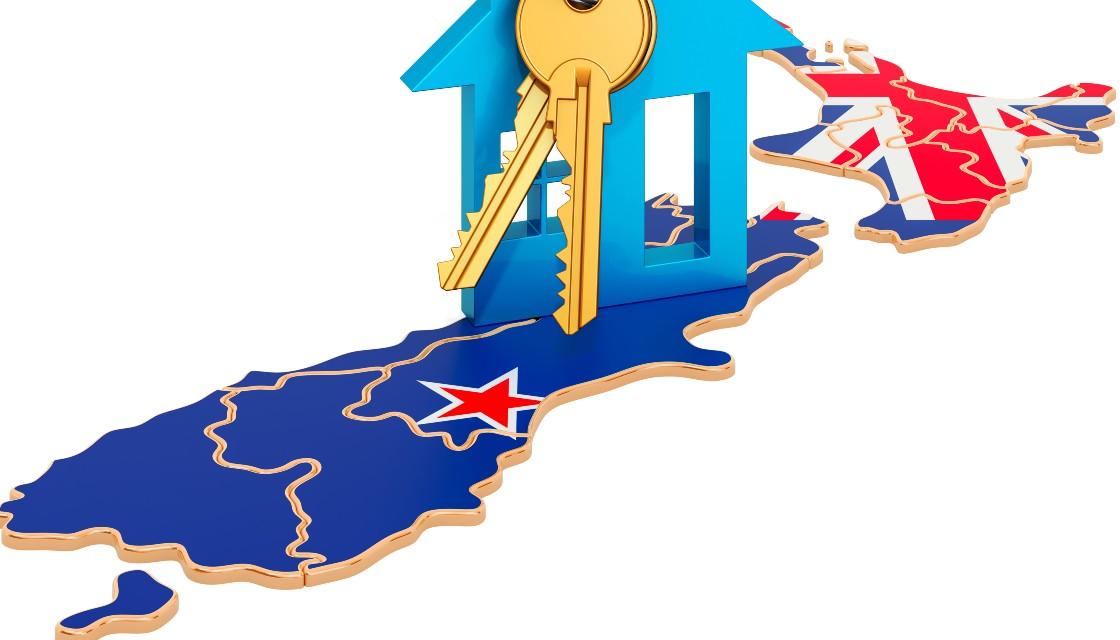Growth in property values slowed in 12 of the country's 18 biggest markets last month, with three showing a drop in value, the latest CoreLogic figures show.
In Auckland, property values grew 1.5 percent in June - 5.3 percent over the last quarter - the average value now sitting at $1.283 million. But quarterly growth is down from it's February quarter peak of 7.4 percent.

June data released by CoreLogic on Thursday shows the nationwide House Price Index (which uses rolling three-month sales data), rose 1.8 percent, a slight drop in momentum from 2.2 percent growth in May.
Over the last 12 months, average property values increased 22.8 percent nationwide, the average property value now tipping $900,000. That takes the collective value of New Zealand's residential property market over the $1.5 trillion mark.
But the rate of growth slowed in 12 markets, including Auckland, Hamilton, Tauranga, Wellington and Dunedin. Having increased 35 percent over the last 12 months, values in Gisborne pulled back in June, dropping 0.9 percent over the month. Values in New Plymouth and Napier showed minor drops of 0.3 percent and 0.1 percent.
Head of research Nick Goodall said the tentative signs of change may give hope to property buyers and the Government, as measures are aimed at tilting the market in favour of first home-buyers.
"The exceptional growth displayed during the past year was not sustainable, particularly with increased deposit requirements, market uncertainty driven by Government regulation and the prospect of higher interest rates," Goodall said.
In Palmerston North, Nelson and Invercargill, monthly price growth continued to rise, at 3 percent, 2.1 percent and 1.6 percent respectively. In Palmerston North, the value of the average property exceeded $700,000 for the first time.
READ MORE
- Average asking price swells 20 percent over year, 15 regions hit new highs
- RMA reform first look: Housing supply must be considered in planning, climate change 'managed retreat' takes shape
- New Zealand has one of the lowest refugee rates in the world — and room for more
- Debt-to-income limits: Reserve Bank looks to restrict lending to house buyers whose debts outstrip income
On top of the Government housing announcement, debt-to-income (DTI) controls, a recent initiative added to the Reserve Bank toolkit, add another element of uncertainty to the market, particularly for investors.
Bank economists are now forecasting an Official Cash Rate rise next year, translating to gradually higher interest rates. Inflation expectations have increased off the back of strong economic performance over the March 2021 quarter.
CoreLogic says as household mortgages are at record levels, a small increase in mortgage rates could have a big impact.
"We have noticed longer-term rates are already ticking up and given the high proportion of debt at a household level, borrowers will need to prepare for increased mortgage payments in the not-too-distant future," Goodall said.
Bank valuation activity indicates demand for residential property has and will reduce, he said But the ongoing listings shortage is likely to cap any drops in value - at least for now.
"If the recent signs of weakness persist throughout the rest of the year however, alongside what would be a seasonal uplift in spring listings, we may finally start to see the imbalance of demand consistently outstripping supply addressed," Goodall added.





